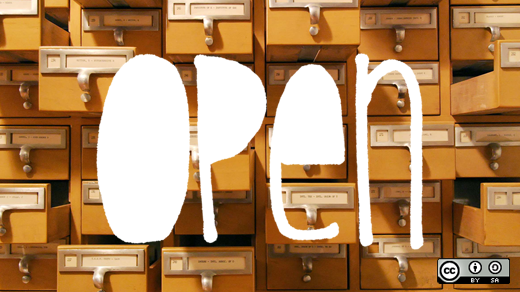A 16-year-old boy recently asked the r/Linux community for advice. When his parents discovered that he'd reloaded his laptop with Linux, they were horrified—after all, this "free" software must certainly be riddled with viruses and/or hackers. It didn't help matters any that he'd "ruined" an expensive gift, and was no longer using some of the expensive software that had been purchased with it. He tried to talk to them about it, but it was tough—he was the teenager; they were the adults.
With the help of information and advice from the Reddit community, that young man talked to his parents again and helped set most of their concerns to rest. The open letter you're reading right now is for the other parents out there who have discovered their children are using free and open source software, and aren't sure what it is, or whether using it is a good idea.
Who am I?
Really, this article isn't about me—it's about you, and it's about your kids, and it's about software. But to give you some idea who's giving you the information, my name is Jim Salter. I'm a 43-year-old professional systems administrator, author, and public speaker. I own and operate a couple of successful small businesses, and I attribute a lot of my success to FOSS—free and open source software—which empowers my businesses, my customers' businesses, and much of the economy you and I function in.
What is FOSS?
FOSS is an acronym for free and open source software. This includes operating systems like Linux and FreeBSD, as well as applications like LibreOffice (which manages office documents, like those created by Microsoft's Excel, Powerpoint, and Word), Firefox (a web browser, like Microsoft's Internet Explorer or Apple's Safari), or GIMP (an image editing program, similar to Adobe Photoshop).
FOSS is not "stolen" software. Free software licenses like the GPL and the BSD and Apache licenses allow users the ability to freely use, and developers the ability to freely develop, the software placed under those licenses. Another important thing to understand about FOSS is that it is not merely "free" in the sense of "free in every box of cereal." Making a new copy of a piece of software literally costs nothing at all—this has made it possible for community efforts to produce world-class products in a way material goods never could be.
FOSS is a community effort, with the emphasis on the community. Every user who actively uses FOSS is actually contributing, in their own way, to that project. By using the project, the user increases awareness of it, attracting more users. Some of those users will file bug reports, helping project developers understand what isn't working right in the code, or what could be working better. Other users who know how to write code (or decide to learn how to write code) may fix those bugs or add new features, directly improving the project. Others who write well may improve the documentation, allowing new users to learn how to use it better. This is what we mean when we talk about the open source community. Even in the case of projects with developers on the full-time salary of a large corporation, the community is incredibly important, and the community is vital to keeping the project active, healthy, and engaging.
How can FOSS be safe?
It's easy to understand why you might think something free can't be as good as something you pay for. In an age where it seems like a new virus is always right around the corner, suspicions tend to flare. You can't trust the "free" program that's a click away in a banner ad on a website, so why should you trust this "free" software?
Again, the important difference to understand is the difference between "free" as in "click here," and "free" as in libre. And again, the community is that difference. When a shady website offers you a "free" download promising coupons, drivers for your computer, or some other form of snake oil, it's only "free" in the sense that you don't need to pull out your credit card. You cannot personally view the source code of that "free" download—and neither can anyone else. This makes it easy for the person pitching the "free click" to bury things in there that you don't want. In the old English language idiom, you're buying a pig in a poke—that is, you're being offered a tightly closed package with nothing but promises about what's inside.
With FOSS, you are not simply getting a free download—you're being given the freedom to openly review (or even edit) the code of the software itself. Where a "free coupon" program might (and does) secretly track all of your activity on the Internet and force ads into webpages you view to make its author money, a FOSS program really can't do something like that. If it tried to, technically knowledgeable users would quickly find the "secret" code that did things that aren't good for the users—and shortly after that, even more technically knowledgeable users would actively disable the code that did things bad for the users.
Nothing in life can truly be guaranteed safe in every situation. However, with FOSS code, you know that the maximum number of people whose motive is making the software good for the user (rather than making money) are actively involved in looking at the code and keeping it good for the users. This is an experience that proprietary software really cannot match, because the primary goal of proprietary software isn't to make the users happy—it's to make the company money.
Want to read some articles about the security record of FOSS? Katherine Noyes of PCWorld gives you five simple reasons why Linux is more secure than Windows.
Why would I want my child to use FOSS? Shouldn't they use what everybody else is using?
Oh, this is the fun part! It's easy to look around your office and see computers running Microsoft Windows, or look around the nearest coffee shop and see Apple phones, and think, "Proprietary software is what runs the world." But that would be a mistake. Open source is frequently more behind the scenes than in your face, but it's actually the driving force empowering the world economy. Does that seem hard to believe? Let's take a look at a few examples. I'll provide links so that you can easily fact-check me or just learn in more detail.
It's probably worth noting that even Microsoft uses Linux in their core infrastructure these days—so it's not like a child loses the ability to work with proprietary software companies by choosing Linux early.
Let's look at some other interesting places you'll find FOSS like Linux and FreeBSD. BMW and Audi are using Linux. Internet, finance, healthcare, and insurance industries overwhelmingly use Linux. In particular, online retail giant Amazon.com has been running on Linux for well over 10 years. Search giant Google not only runs their public facing infrastructure on Linux, but also the desktop computers their employees sit in front of day to day. IBM is even running Linux on their Z series mainframe computers for enterprises! Linux is also increasingly prevalent in educational institutions, from the kindergarten to the postgraduate level, around the world. For one literally out-of-this-world example, the International Space Station runs on Linux. And if you're not sick of examples yet, here's a list of 50 more educational, governmental, and big business Linux users.
BSD—another FOSS operating system that runs most of the same applications Linux does—doesn't get as much press as Linux these days, but it's also crucially important. Without BSD, we very likely wouldn't have the Internet as we know it today—the TCP/IP network protocol our computers all speak was adopted partly because of its free availability under the BSD license, and the Routing Information Protocol it used to address extremely large networks came from BSD itself. If you look hard enough, you'll find BSD everywhere—parts of the Apple OS X operating system are FreeBSD, Sony's Playstation 4 gaming console runs on a modified version of FreeBSD, Juniper powers its enterprise-grade network routers with FreeBSD, Netflix uses FreeBSD to deliver and cache streaming TV and movies, and WhatsApp uses FreeBSD infrastructure to deliver real time messages between millions of users around the world.
FOSS operating systems aside, FOSS applications power a lot of the world we all live in too. Apache and NGINX web servers power more than 70% of the world's websites, both large and small. The open source video rendering application Blender has been used to make some pretty impressive free movies, as well as award-winning short independent films and major advertisements for products including Pepsi, Coca-Cola, BMW, Hugo Boss, and more. You've used FOSS personally if you've ever used the Mozilla Firefox web browser, and even Google's Chrome browser is based on the open source Chromium browser.
The point is that there are a lot, and I mean a lot of ways to make money as an adult with a solid knowledge of open source technologies... and to make more money than you would without that knowledge. Considerably more money, in fact—Indeed.com shows that jobs with the keywords "Microsoft Windows" have an average salary of $64,000, while jobs with the keyword "Linux" have an average salary of $99,000.
In conclusion
If your eyes haven't crossed yet from information overload, I hope you can agree with me that free and open source software is a wonderful thing for a child to be interested in. And the best part is that the community welcomes you—as parents and as individuals—as much as it does your children! If you want to find out what your children are doing, you can read documentation for the operating systems and applications they're using, or you can install the same things they are on your own computers to see. It won't cost you anything, and it just might gain you a lot.







5 Comments